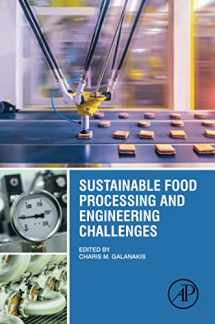
Sustainable Food Processing and Engineering Challenges
Book details
Summary
Description
Sustainability is becoming a major item for the food industry around the world, as resources become more restricted and demand grows. Food processing ensures that the resources required producing raw food materials and ingredients for food manufacturing are used most efficiently. Responding to the goals of sustainability requires the maximum utilization of all raw materials produced and integration of activities throughout all the production-to-consumption stages. To maximize the conversion of raw materials into consumer products, food engineering and food processing challenges should be met.
Sustainable Food Processing and Engineering Challenges covers the most trend topics and challenges of sustainable food processing and food engineering, giving emphasis in engineering packaging for a sustainable food chain, food processing technologies, Industry 4.0 applied to food, food digestion engineering, sustainable alternative food processing technologies, physico-chemical aspects of food, cold plasma technology, refrigeration climate control, non-thermal pasteurisation and sterilization, nanotechnology and alternative processes requiring less resources, sustainable innovation in food product design etc.
Edited by a multiple team of experts, the book is aimed at food engineers who are seeking to improve efficiency of production systems and also researchers, specialists, chemical engineers and professionals working in food processing.


We would LOVE it if you could help us and other readers by reviewing the book
Book review



